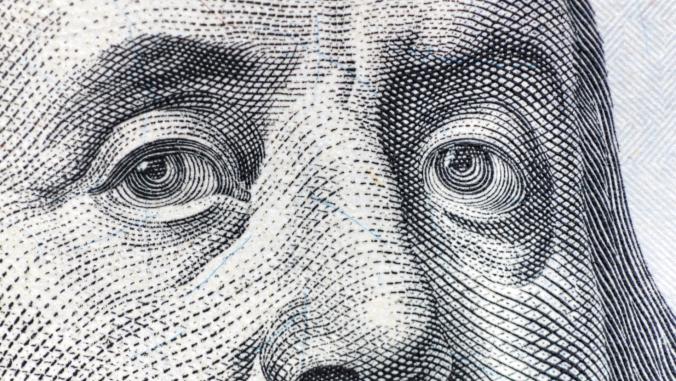Report frowns on Citi, MorganStanley as 'coal-mining banks'
<p>Bank of America and MorganStanley Chase also ranked poorly on sustainability in rankings by the Interfaith Center on Corporate Responsibility and Sustainalytics.</p>

Bank building by Kevin George via Shutterstock
A recent report [PDF] by a consortium of European nongovernmental organizations (NGOs) including BankTrack exposes the claims of sustainability by many major global banks to be little more than greenwashing. Almost all the banks analyzed “have expressed their concern about global warming and have made far-reaching statements regarding their commitment to a 'low-carbon economy,'” the report found. Yet since 2005, “commercial banks have channeled almost $223 billion to the world’s top coal mining companies.”
The four worst performing banks -- Citi, Morgan Stanley, Bank of America and JPMorgan Chase -- are headquartered in the United States.
The report also points out, “While most large commercial banks provide figures on their annual investments into renewable energy, they neither track nor publish their support for dirty fossil fuel investments.” The lack of transparency by banks was also noted by another report, by Corporate Knights [PDF], which found the financial sector to be the “most opaque” regarding sustainability disclosure.
Such findings have to be of concern to sustainable investors who prioritize corporate engagement over divestment, and a report released last week by the Interfaith Center on Corporate Responsibility (ICCR) and Sustainalytics supports such concerns. The report, Ranking the Banks, focuses on four key performance indicators: risk management, responsible lending, executive compensation and political contributions. Seven U.S. banks were surveyed in the report.
At best, no bank had better than an average score, as the highest was only 60 out of a possible 100. Overall, “links between executive compensation levels and both financial and ESG (environmental, social and corporate governance) performance” remain unclear, and despite the establishment of say-on-pay by Dodd-Frank legislation, executive bonuses persist “at levels perceived to be excessive.”
Furthermore, “Banks were eager to communicate on improved risk management processes but were less forthcoming on business practices currently attracting criticism such as activities in tax havens, dark pools or high frequency trading,” according to the report. At a press conference announcing its publication, Laurence Loubieres of Sustainalytics pointed out, “Risk management remains a particular area of concern. The banks continue to be involved in significant controversies.”
In the area of responsible lending and investment, the report findings echo those of the previously cited reports. “Key sustainability issues which impact materiality and long-term risk, such as water and climate change impacts, are not systematically taken into account in these companies’ investment decisions,” it states.
“U.S. banks need to more fully integrate environmental and social issues such as climate change, water and human rights into their investment practices,” Loubieres said. “Banks play a major role in the way other industries operate.”
Finally, “The banks’ use of corporate treasury funds to influence policy and regulation is of great concern to responsible investors and disclosure on this measure should be improved.”
“As long-term investors in the sector and fiduciaries for our respective organizations, we are painfully conscious of the enormous financial risk we all face when the 'social themes' covered by this survey have not been adequately addressed,” the report concludes. “As shareholders we see a direct and material correlation between an institution’s attendance to these issues and its respective degree of risk exposure.”
At the press conference, Sister Barbara Aires pointed out that ICCR members “began sounding the alarms about the risks of unchecked derivatives trades four years before the crisis hit, but those alarms went largely unheeded.”
“Little has been done in the last five years to assure investors and the public that the major banks fully acknowledge their role in helping to create the crisis, or that they accept responsibility to provide restorative justice for the millions of people who have been harmed by it,” she said. “The unrepentant tone of the banks appears for the most part unchanged.”
And ICCR member David Moore said that the findings point out “not only examples of poor risk management and weak regulatory oversight, but of a pervasive lack of ethics and a focus on short-term profits without consideration of the long-term impacts on average customers and the broader society.”
“No bank seems willing to put their head above the parapet, to lead the charge toward sector reform,” Rev. Seamus Finn observed. “It is our intention to challenge each of them to do so.”
And Loubieres of Sustainalytics said, “There is clearly room for improvement for all the banks.”
The original version of this article appeared at SocialFunds. Image of bank building by Kevin George via Shutterstock





